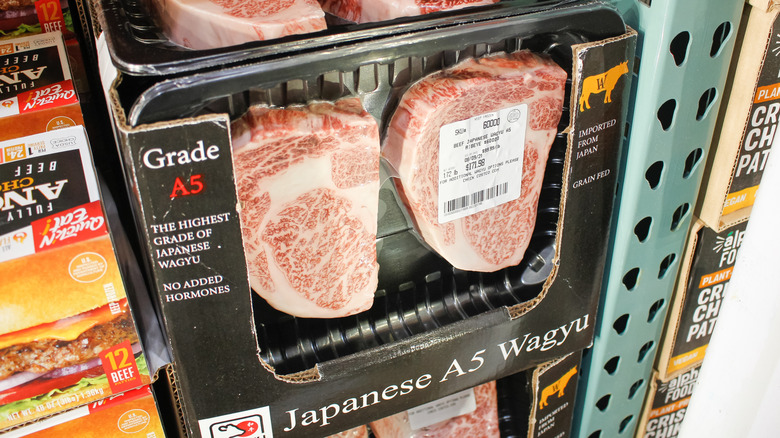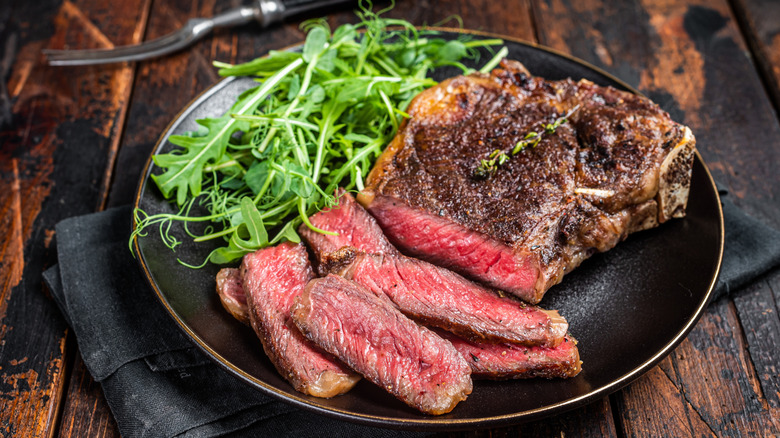Is Costco's Wagyu Beef Authentic?
Is there anything Costco doesn't have? From some of the best produce to stock up on to the cheapest rotisserie chicken around, there isn't a lot that you can't find there. In fact, Costco even claims to sell one of the most sought-after types of steak: Wagyu. But is it the real deal?
Now authentic Wagyu beef is pretty hard to find because it can only come from four types of Japanese cattle: the Japanese Black, Brown, Polled, and Shorthorn cow. Each of these breeds is prone to intense marbling, demonstrated by the distinctive white patterns of fat that interlace slices of Wagyu meat. However, Japan halted all exports of these cattle breeds in 1997, though not before several had already been imported into the U.S. and Australia. In Japan, Wagyu beef is meticulously regulated and graded based on a letter and number scale, with A through C dictating the yield of meat and 1 through 5 scale accounting for quality, marling, and texture.
The Wagyu steaks you'll find from Costco are labeled A5, meaning they're from the best yields and have excellent overall quality. Per Costco's online listing, the steaks they sell are imported from the Kagoshima prefecture in Japan, one of the country's largest producers of Wagyu aside from Hokkaido and Miyazaki. Likewise, their listing for A5 Wagyu boneless ribeye roast states that it comes with a certificate of authenticity, which is something all authentic Wagyu from Japan should have and it comes from the Japanese Meat Grading Association. While their steak listing doesn't mention a certificate, this is likely an oversight since they do specify it with other Wagyu products.
Don't overlook American Wagyu
Although Wagyu from Japan is often the most sought-after, it can be extremely expensive, even at places like Costco. Fortunately, there are alternatives such as American Wagyu, which, according to the American Wagyu Association, is produced by cattle descended from the few imported from Japan in the 1990s. While some farms have been able to raise full-blooded Wagyu cattle in the U.S., they also have created their crossbreeds. These crossbred cattle aren't considered authentic Wagyu by Japanese standards, but they may actually be preferable to some diners. In an interview with The Food Institute, Nick Fiorentino, owner of The Meatery, a butcher shop certified by the Kobe Beef Association, stated that Japanese Wagyu is sometimes too rich for some folks, so he points them towards American or Australian crossbred versions.
In fact, Japanese Wagyu steaks are often cut much thinner than their American counterparts because the meat's richness doesn't lend itself to being eaten the same as a traditional steak. If you tried to cook it up as part of a steak and potato dinner, you'd definitely find yourself overwhelmed fast.
Now, American Wagyu doesn't have the same melt-in-your-mouth quality as authentic Japanese meat, mainly due to less marbling, but its lower cost makes it more accessible, and the quality is still some of the best you can find. If you're looking to experience Wagyu for yourself but don't want to break the bank, it's worth checking out American Wagyu.

